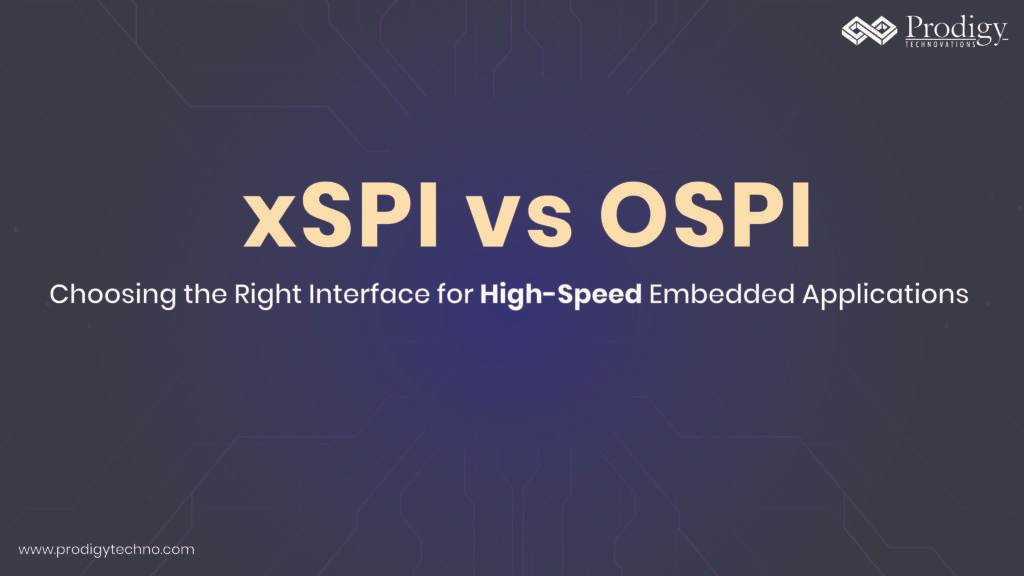

Introduction
In embedded systems and high-speed communication, xSPI (eXtended Serial Peripheral Interface) and OSPI (Octal Serial Peripheral Interface) are two popular protocols for interfacing with flash memory and other peripherals. While both are designed to improve data throughput over traditional SPI, they differ in architecture, speed, and implementation.
Feature Comparison
Feature | xSPI | OSPI |
Bus Width | Supports multiple data lines, typically 1, 2, 4, and up to 8 lines | Uses 8 data lines for maximum throughput |
Speed | Can achieve high speeds depending on implementation | Optimized for very high speeds, often >200MB/s |
Complexity | Flexible but may require more configuration | More straightforward but hardware dependent |
Use Cases | General-purpose high-speed communication | High-performance flash memory operations |
Compatibility | Backwards compatible with SPI and QSPI | Primarily focused on octal memory devices |
Conclusion
Both xSPI and OSPI are powerful interfaces for high-speed communication in embedded systems. xSPI offers flexibility and compatibility, while OSPI delivers unmatched throughput for octal memory devices. The choice between them depends on the specific requirements of the application, including speed, compatibility, and hardware support. New to xSPI and want to understand its features, advantages, and applications in depth?
Explore our full guide: Understanding xSPI The Future of High-Speed Flash Memory Interfaces.

Our team represents a talented, experienced, and highly specialized group of development engineers, sales and marketing specialists. Through many years of direct engineering involvement with our customers, our personnel have developed expertise in wide range of technologies in serial data.
Prodigy Technovations Pvt Ltd
#294, 3rd Floor, 7th Cross, 7th Main, BTM II Stage,Bangalore – 560 076 | India
+91 80 4212 6100
contact@prodigytechno.com
© 2023 Prodigy Technovations. All Rights Reserved
PGY-UFS4.0-PA, UFS Protocol Analyzer is the industry-first working and tested UFS4.0 Protocol Analyzer. It offers protocol data capture and debugging of data across MPHY, UniPro, and UFS protocol layers…